Piston Slap: Ranger of Motion, Part II

W.B. writes:
Sajeev,
My ’05 Ranger 4wd w/5spd manual (35K on the odometer) does something strange indeed when I get ready to drive after it’s been parked for several hours. With the parking brake off, I shift to first and lightly engage the clutch. The truck strains against some kind of resistance, as if there were something obstructing the tires or as if I were starting on an incline. Neither of these are ever the case. With a little more gas and a little more clutch engaged, the truck “breaks free” with a loud “clunk,” and then drives normally afterward.
There has been recent (400 miles ago) maintenance performed by the dealer. To address minor brake squeal, the front brake pads were replaced and the rotors machined. This hasn’t solved the squealing problem, but a little research on owner forums suggests that the new brake pads may be of the wrong composition, causing them to be extra grippy in wet conditions. It has certainly been rainy the past few days, and I have also noticed exceptional grip—almost to the point of lockup—from the brakes when first starting, but I don’t know if there is a connection.
What in the Sam Hill is going on? My previous experiences with Ford’s apparent “do nothing until it happens when we drive it” policy and Murphy’s law have me reluctant to bring it in until I know as much about the problem as possible. So, is this problem dangerous to me or destructive to the truck? What’s my next move?
Sajeev answers:
First, talk to a mechanic well-versed in Ford axles about the possibility of C-clip failure in your rig, because it’s far from uncommon. Let’s hope that’s not the case.
I can’t imagine the dealer’s brake job causing the problem, they aren’t inclined to put non-OEM parts as referred to by the forums. Maybe the springy bits in the rear brake drums are out of whack, sometimes driving in reverse for a few feet with the parking brake engaged will self-adjust them. But this vehicle seems too new for that nonsense, so here’s my thought:
U-joints. They cause trouble in older cars, but perhaps you briefly went offroading in your ‘lil 4×4 truck? That would be rather impossible to resist. More to the point, if you can modulate a clunk from clutch and throttle inputs, that really sounds like a driveline concern to me. At some point the clunk will worsen, cause vibrations, etc but have the U-joints examined for excess play.
Send your queries to mehta@ttac.com. Spare no details and ask for a speedy resolution if you’re in a hurry.

More by Sajeev Mehta
Latest Car Reviews
Read moreLatest Product Reviews
Read moreRecent Comments
- Jeff Self driving cars are not ready for prime time.
- Lichtronamo Watch as the non-us based automakers shift more production to Mexico in the future.
- 28-Cars-Later " Electrek recently dug around in Tesla’s online parts catalog and found that the windshield costs a whopping $1,900 to replace.To be fair, that’s around what a Mercedes S-Class or Rivian windshield costs, but the Tesla’s glass is unique because of its shape. It’s also worth noting that most insurance plans have glass replacement options that can make the repair a low- or zero-cost issue. "Now I understand why my insurance is so high despite no claims for years and about 7,500 annual miles between three cars.
- AMcA My theory is that that when the Big 3 gave away the store to the UAW in the last contract, there was a side deal in which the UAW promised to go after the non-organized transplant plants. Even the UAW understands that if the wage differential gets too high it's gonna kill the golden goose.
- MKizzy Why else does range matter? Because in the EV advocate's dream scenario of a post-ICE future, the average multi-car household will find itself with more EVs in their garages and driveways than places to plug them in or the capacity to charge then all at once without significant electrical upgrades. Unless each vehicle has enough range to allow for multiple days without plugging in, fighting over charging access in multi-EV households will be right up there with finances for causes of domestic strife.



















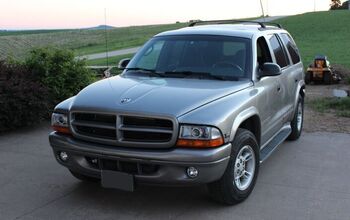
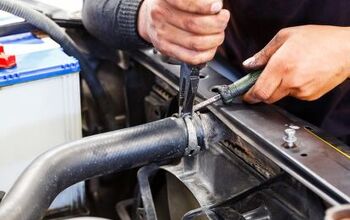
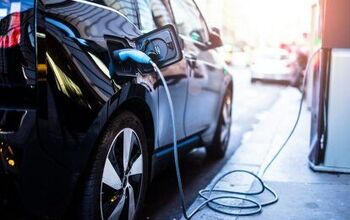
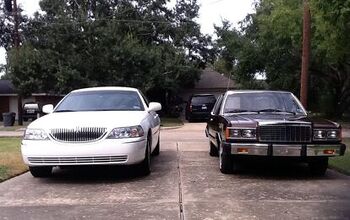
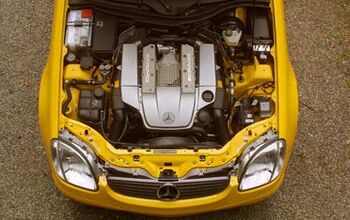










Comments
Join the conversation
We had the exact same issue in a '98 Ranger. Never bothered having it fixed because it only happened a few times a year, but with the 4-cyl you had to keep the pedal floored and slowly release the clutch until something eventually "popped" open and returned the drivetrain to normal. Always thought it was a throttle issue.